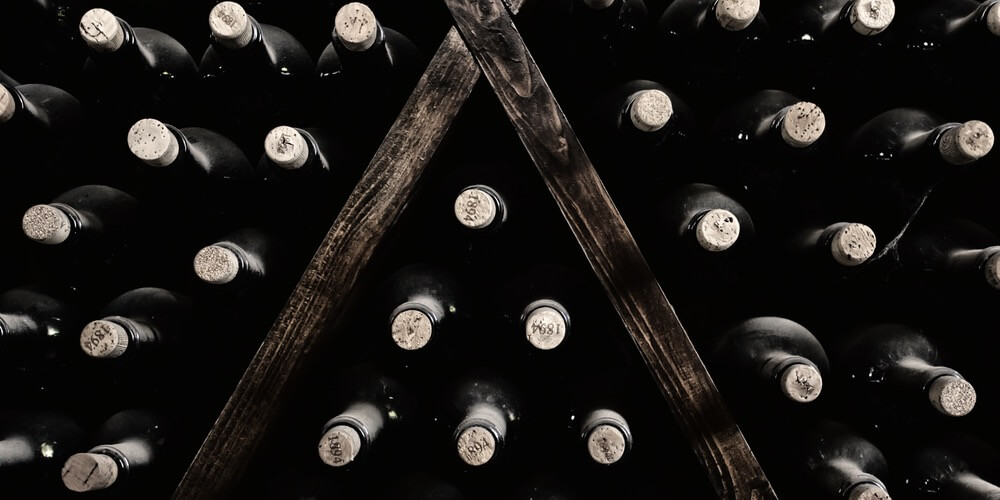Halal Wine Cellar uncorks the potential of the US alcohol-free beverage market
The US importer is tapping a burgeoning market due to the lack of zero alcohol wines, but has faced criticisms over marketing the beverage while an Austrian halal certification body will no longer give certification to ‘halal wine.’
Husband and wife entrepreneurs Mohit Chowdhury and Jakia Zaman launched their New York City-based online business Halal Wine Cellar during Ramadan in April 2021. “We’re trying to break stigmas,” Zaman told Salaam Gateway
After experiencing the product during a visit to France, the couple started selling 0.0% alcohol by volume (ABV) beverages in the USA imported from Spanish, French and Italian wineries, offering a variety of red, white, rose and sparkling.
ABV is a globally used measure and defines the number of millilitres (ml) of pure alcohol (ethanol) present in 100 ml of solution at 20°C (68°F).
“It's hard to find 0.0% alcohol wine in the US, at least, so we learned,” Chowdhury said.
According to the couple, most wines in the US classified as non-alcoholic contain 0.5% ABV, as approved by the U.S. Food and Drug Administration. Cost plays a role as it takes a more expensive filtration process to get the 0.0% ABV level.
Non-alcoholic wine goes through the same fermentation and aging process as regular wine. In an additional step, the alcohol is removed during the last stages of production. Non-alcoholic wines contain less sugar than grape juice, while providing wine flavours.
The entrepreneurs initially focused on direct-to-consumer sales. Seeing the level of repeat orders as proof of concept, Halal Wine Cellar will add wholesale as a distribution channel this year. With a 10% profit margin as the goal, the firm sells nationwide with hot spots in New York, New Jersey, California, Texas, and Florida.
While Halal Wine Cellar’s sales are promising, the business owners face a backlash, too. “We deal with people who can't disassociate the word alcohol with wine and criticise the use of the term halal wine,” Zaman said.
Zaman and her husband, millennials with Bangladeshi roots, see it as a generational issue and one of religious interpretation. “There's even this taboo for people who are ultra-conservative that you can't hold a wine glass in your hand because you're imitating the disbelievers,” Zaman said. “Even if you have water in it,” her husband chimed in.
Others tease that the couple sells “glorified grape juice” with a greater price sticker on it, they said. Halal certification added a level of assurance. “When we first started, the certificates meant the world to us,” Zaman said. However, some halal certification bodies are revisiting their stance when it comes to the certification of this product, like Austria-based Islamic Information, Documentation and Certification GmbH (IIDC), which also runs an office in France.
IIDC has recently stopped issuing halal certificates for one of Halal Wine Cellar’s suppliers. A certificate issued by IIDC and previously disclosed on the Halal Wine Cellar website showed an expiration date of 31 December 2021.
“We have stopped our certification activities for ‘halal wine’,” said IIDC president Günther Ahmed Rusznak, noting that the wine-maker didn’t follow labelling requests and continued using the word wine in the product description.
Rusznak explained that the grape variety listed on the certificates, such as Merlot and Riesling, also irritated the Islamic community. “We have always attached importance to the fact that both designations [ABV and grape] appear on the labels. But never the term ‘wine’,” Rusznak said. “Unfortunately, it was advertised again and again, and so we decided to stop certification.”
“We don’t rely on them [halal-certificates] anymore, as most people are good with the 0.0%,” Zaman said.
Regardless of perceptions, Halal Wine Cellar is looking to tap into the market potential as non-alcoholic wine is projected to grow at a 9% CAGR. According to market research firm IWSR Drinks Market Analysis, sales of non- and low-alcohol products reached almost $10 billion in 2021, commanding a 3.5% share of the entire beverage industry in Australia, Brazil, Canada, France, Germany, Japan, South Africa, Spain, the United Kingdom, and the US.
© SalaamGateway.com 2021 All Rights Reserved

